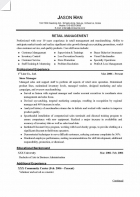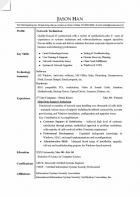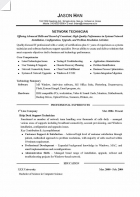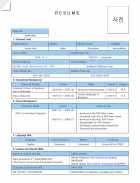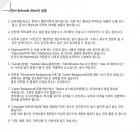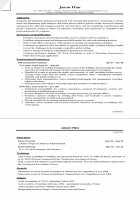| |
Self-Introduction & Cover Letter? |
|
 |
| |
There are "Infomercial" advertisements that air late at night on American TV. Unlike typical 30-second ads, these commercials run for 15 minutes to an hour. The effectiveness of these ads has already been proven. The reason is that, beyond just showcasing the advantages of a product or service, they provide information that customers need and can share.
A resume includes the "specs" such as your skills, achievements, and qualifications.
On the other hand, a self-introduction letter and a cover letter highlight things that are difficult to include in an English resume.
These may include hobbies, special skills, personal stories, reasons for applying, future aspirations, volunteer work, and more.
It is also possible to include ongoing projects or plans.
Success Story 1
A woman working in marketing at the New York Times’ job site was accepted as a chef despite not having a chef's certification.
In her cover letter, she wrote:
"With the fond memory of my family enjoying cooking and eating together since I was young, I enjoy cooking whenever I have free time."
Success Story 2
When applying for a flight attendant position, the glamorous image of the job contrasts with the difficult realities of the work.
Flight attendants work in cramped spaces, endure pressure and time zone differences, and must manage irregular sleep schedules and sleeping arrangements. Therefore, physical fitness is crucial for flight attendants.
By mentioning hobbies, such as fitness and health, in the self-introduction letter, applicants can highlight their strengths.
For these reasons, the self-introduction letter and cover letter are very important.
The cold specs of a resume combined with a soft story can create a synergistic effect.
|
|
|
| |
7 Common Mistakes of Customers |
|
 |
| |
| 1. Personal reasons in the motivation for applying are not recommended. |
"For a bigger company, for better conditions, for my personal growth, etc."
Why do we write resumes and self-introduction letters? To get the chance for an interview.
So, what should you do?
You should focus on how your strengths and skills can help the company achieve its goals.
A company is not a charity organization. The purpose of a company is to generate profit.
It does not exist because of your personal reasons. |
|
|
| 2. Don't write an autobiography. Write a copywriting piece. |
"Born in a certain year, in a certain town, loved by a strict father and a caring mother, my father does this and that..."
This is how most self-introduction letters begin.
A brief introduction about your background is fine, but if you write half a page about it, it becomes an issue.
Let me be clear: HR managers are not particularly interested in where you were born or who your parents are.
The company’s focus is on whether you are a good fit for the company, and whether you have the relevant experience and skills.
Describe the key roles you took on as you developed your career. |
|
|
| 3. Humility and unnecessary information |
"I cannot claim to be an expert in my field."
"I cannot always implement everything I have learned in society, but I am trying my best to practice as much as I can."
Statements like these are often seen as humble.
While humility may be appreciated in other areas, it is never necessary in a resume.
When competing against hundreds of others, simply showcasing your strengths may not be enough, and humility can be perceived as a weakness.
Be proactive, confident, and make sure to highlight your strengths clearly. |
|
|
| 4. Content that does not consider cultural differences |
For the first example:
"PDP stands for Plasma Display Panel, which is used in large TVs..."
This sentence has two issues:
First, in the U.S. and the UK, people refer to LCD TVs simply as LCDs, while PDPs are referred to as Plasma TVs unlike in Korea.
Second, there may be no need to explain what PDP is, as it could undervalue the reader's knowledge.
Do not include such explanations.
For the second example:
"If I had to compare my personality to an animal, I would be a bear?gentle yet firm and determined to achieve my goals. That bear is me."
"I am like OO?like the sea, water, forest, white, etc."
Such metaphors are not appropriate. The perception of animals and objects may differ between Korea and other countries. Additionally, HR managers may have different personal views.
In the U.S., bears are seen as dangerous animals, far removed from the qualities of gentleness. |
|
|
| 5. Unnecessary religious content |
In self-introduction letters, discussions about religion often appear, but it is not advisable to mention religion.
Although I have my own religious beliefs, recent statistics in Korea show that 46.9% of the population is non-religious,
18.3% are for Christian, 22.8% for Buddhist, and 10.9% for Catholic.
There is a high probability that the HR manager may be non-religious or follow a different religion, which could lead to potential bias.
Furthermore, while many people mention doing volunteer work through religious organizations, it is better to emphasize that the volunteer work was done out of personal initiative. |
|
|
| 6. Saying you will work hard without justification |
"I will work harder on my English since I am lacking in it."
Many applicants tend to say they will work hard.
In books about American resumes, you will never find the phrase "I will work hard."
It is an obvious statement, and without any supporting evidence, saying you will work hard is ineffective.
Additionally, stating that you are not good at English is not advisable.
It would be better to rephrase the example like this:
"I am currently studying at an English language school to prepare for the global era." |
|
|
| 7. Requests for ghostwriting |
Occasionally, I receive inquiries about ghostwriting, and it makes me question whether the applicant truly wants to get the job.
If you ask a stranger to write it for you, what kind of introduction will they provide?
They might write something generic, full of nice words or abstract statements.
However, what really matters are your unique personal qualities, skills, achievements, qualifications, and "specs" that the company wants to see.
You should also include hobbies, special skills, personal stories, reasons for applying, future aspirations, volunteer work, and more. |
|
|
|

 SimpleTouch Design
SimpleTouch Design



